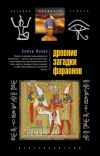Текст книги "Почему одни страны богатые, а другие бедные. Происхождение власти, процветания и нищеты"

Автор книги: Полина Дашкова
Жанр: Зарубежная публицистика, Публицистика
Возрастные ограничения: +16
сообщить о неприемлемом содержимом
Текущая страница: 46 (всего у книги 46 страниц)
North, Douglass C. (1982). Structure and Change in Economic History. New York: W. W. Norton and Co.
North, Douglass C., and Robert P. Thomas (1973). The Rise of the Western World: A New Economic History. New York: Cambridge University Press.
North, Douglass C., John J. Wallis, and Barry R. Weingast (1989). Violence and Social Orders: A Conceptual Framework for Interpreting Recorded Human History. Princeton, N. J.: Princeton University Press.
North, Douglass C., and Barry R. Weingast (1989). “Constitutions and Commitment: Evolution of Institutions Governing Public Choice in 17th Century England.” Journal of Economic History 49: 803–32.
Nove, Alec (1992). An Economic History of the USSR 1917–1991. 3rd ed. New York: Penguin Books.
Nugent, Jeffrey B., andJames A. Robinson (2010). “Are Endowments Fate? On the Political Economy of Comparative Institutional Development.” Revista deHistoria Economica (Journal of Iberian and Latin American Economic History) 28: 45–82.
Nunn, Nathan (2008). “The Long-Term Effects of Africa’s Slave Trades.” Quarterly Journal of Economics 123: 139–76.
Nunn, Nathan, and Leonard Wmtchekon (2011). “The Slave Trade and the Origins of Mistrust in Africa,” forthcoming in the American Economic Review.
O’Brien, Patrick K., Trevor Griffiths, and Philip Hunt (1991). “Political Components of the Industrial Revolution: Parliament and the English Cotton Textile Industry, 1660–1774.” Economic History Review, New Series 44: 395–423.
Ogilvie, Sheilagh (2011). Institutions and European Trade: Merchant Guilds 1000–1500. New York: Cambridge University Press.
Olson, Mancur C. (1984). The Rise and Decline of Nations: Economic Growth, Stagflation, and Social Rigidities. New Haven, Conn.: Yale University Press.
O’Rourke, Kevin H., and Jeffrey G. Williamson (2002). “After Columbus: Explaining the Global Trade Boom 1500–1800.” Journal of Economic History 62: 417–56.
Owen, E. Roger (1981). The Middle East in the World Economy, 1800–1914. London: Methuen and Co.
Owen, E. Roger, and Sevket Pamuk (1999). A History of Middle East Economies in the Twentieth Century. Cambridge, Mass.: Harvard University Press.
Owen, Thomas C. (1991). The Corporation Under Russian Law, 1800–1917. New York: Cambridge University Press.
Palmer, Robin H. (1977). Land and Racial Domination in Rhodesia. Berkeley: University of California Press.
Palmer, Robin H., and QJNeil Parsons, eds. (1977). The Roots of Rural Poverty in Central and Southern Africa. London: Heinemann Educational.
Pamuk, Sevket (2006). “Estimating Economic Growth in the Middle East Since 1820.” Journal of Economic History 66: 809–28.
Pan, Philip P. (2008). Out Of Mao’s Shadow: The Struggle for the Soul of a New China. New York: Simon & Schuster.
Pankhurst, Richard (1961). An Introduction to the Economic History of Ethiopia, from Early Times to 1800. London: Lalibela House.
Parsons, QJNeil (1998). King Khama, Emperor Joe and the Great White Queen. Chicago: University of Chicago Press.
Parsons, Q Neil, Willie Henderson, and Thomas Tlou (1995). Seretse Khama, 19211980. Bloemfontein, South Africa: Macmillan.
Perkins, Dwight H., Steven Radelet, and David L. Lindauer (2006). Development Economics. 6th ed. New York: W. W. Norton and Co.
Pettigrew, William (2007). “Free to Enslave: Politics and the Escalation of Britain’s Transatlantic Slave Trade, 1688–1714.” William and Mary Quarterly, 3rd ser., LXIV: 3–37.
– (2009). “Some Underappreciated Connections Between Constitutional Change and National Economic Growth in England, 1660–1720.” Unpublished paper. Department of History, University of Kent, Canterbury.
Phillipson, David W. (1998). Ancient Ethiopia: Aksum, Its Antecedents and Successors. London: British Museum Press.
Pincus, Steven C. A. (2009). 1688: The First Modern Revolution. New Haven, Conn.: Yale University Press.
Pincus, Steven C. A., andJames A. Robinson (2010). “What Really Happened During the Glorious Revolution?” Unpublished. http://scholar.harvard.edu/jrobinson.
Pintner, Walter M. (1967). Russian Economic Policy Under Nicholas I. Ithaca, N. Y.: Cornell University Press.
Post, Jerrold M. (2004). Leaders and Their Followers in a Dangerous World: The Psychology of Political Behavior Ithaca, N. Y.: Cornell University Press.
Price, David A. (2003). Love and Hate in Jamestown: John Smith, Pocahontas, and the Heart of a New Nation. New York: Knopf.
Puga, Diego, and Daniel Trefler (2010). “International Trade and Domestic Institutions: The Medieval Response to Globalization.” Unpublished. Department of Economics, University of Toronto.
Putnam, Robert H., Robert Leonardi, and Raffaella Y. Nanetti (1994). Making Democracy Work: Civic Traditions in Modern Italy. Princeton, N. J.: Princeton University Press.
Ransom, Roger L., and Richard Sutch (2001). One Kind of Freedom: The Economic Consequences of Emancipation. 2nd ed. New York: Cambridge University Press.
Reid, Anthony (1993). Southeast Asia in the Age of Commerce, 1450–1680. Volume 2: Expansion and Crisis. New Haven, Conn.: Yale University Press.
Reinikka, Ritva, and Jacob Svensson (2004). “Local Capture: Evidence from a Central Government Transfer Program in Uganda.” Quarterly Journal of Economics, 119: 679–705.
Relea, Francesco (2007). “Carlos Slim, Liderazgo sin Competencia.” In Jorge Zepeda Patterson, ed. Los amos de Mexico: los juegos de poder a los que solo unos pocos son invitados. Mexico City: Planeta Mexicana.
Reno, William (1995). Corruption and State Politics in Sierra Leone. New York: Cambridge University Press.
– (2003). “Political Networks in a Failing State: The Roots and Future of Violent Conflict in Sierra Leone,” IPG 2: 44–66.
Richards, Paul (1996). Fighting for the Rainforest: War, Youth and Resources in Sierra Leone. Oxford, U. K.: James Currey.
Robbins, Lionel (1935). An Essay on the Nature and Significance of Economic Science. 2nd ed. London: Macmillan.
Robinson, Eric (1964). “Matthew Boulton and the Art of Parliamentary Lobbying.” The Historical Journal 7: 209–29.
Robinson, James A. (1998). “Theories of Bad Policy.” Journal of Policy Reform 1, 1–46.
Robinson, James A, and QJNeil Parsons (2006). “State Formation and Governance in Botswana.” Journal of African Economies 15, AERC Supplement (2006): 100140.
Rock, David (1992). Argentina 1516–1982: From Spanish Colonization to the Falklands War. Berkeley: University of California Press.
Romero, Mauricio (2003). Paramilitares y autodefensas, 1982–2003. Bogota: Editorial Planeta Colombiana.
–, ed. (2007). Para Politica: La Ruta de la Expansion Paramilitary los Acuerdos Politicos, Bogota: Corporation Nuevo Arco Iris: Intermedio.
Sachs, Jeffery B. (2006). The End of Poverty: Economic Possibilities for Our Time. New York: Penguin.
Sahlins, Marshall (1972). Stone Age Economics. Chicago: Aldine.
Saunders, David (1992). Russia in the Age of Reaction and Reform, 1801–1881. New York: Longman.
Savage-Smith, Emily (2003). “Islam.” In Roy Porter, ed. The Cambridge History of Science. Volume 4: Eighteenth—Century Science. New York: Cambridge University Press.
Sawers, Larry (1996). The Other Argentina: The Interior and National Development. Boulder: Westview Press.
Schapera, Isaac (1940). “The Political Organization of the Ngwato of Bechuanaland Protectorate.” In E. E. Evans-Pritchard and Meyer Fortes, eds. African Political Systems. Oxford, U. K.: Oxford University Press.
– (1952). The Ethnic Composition of the Tswana Tribes. London: London School of Economics and Political Science.
– (1970). Tribal Innovators: Tswana Chiefs and Social Change 1795–1940. London: The Athlone Press.
Schoenhals, Michael, ed. (1996). China’s Cultural Revolution, 1966–1969. Armonk, N. Y.: M. E. Sharpe.
Sfakianakis, John (2004). “The Whales of the Nile: Networks, Businessmen and Bureaucrats During the Era of Privatization in Egypt.” In Steven Heydemann, ed. Networks of Privilege in the Middle East. New York: Palgrave Macmillan.
Sharp, Kevin (1992). The Personal Rule of Charles I. New Haven, Conn.: Yale University Press.
Sheridan, Richard B. (1973). Sugar and Slaves: An Economic History of the British West Indies 1623–1775. Baltimore, Md.: Johns Hopkins University Press.
Sidrys, Raymond, and Rainer Berger (1979). “Lowland Maya Radiocarbon Dates and the Classic Maya Collapse.” Nature 277: 269–77.
Smith, Bruce D. (1998). Emergence of Agriculture. New York: Scientific American Library.
Sokoloff, Kenneth L. (1988). “Inventive Activity in Early Industrial America: Evidence from Patent Records, 1790–1846.” Journal of Economic History 48: 813–30.
Sokoloff, Kenneth L., and B. Zorina Khan (1990). “The Democratization of Invention During Early Industrialization: Evidence from the United States, 1790–1846.” Journal of Economic History 50: 363–78.
Steffens, Lincoln (1931). The Autobiography of Lincoln Steffens. New York: Harcourt, Brace and Company.
Stevens, Donald F. (1991). Origins of Instability in Early Republican Mexico. Durham, N. C.: Duke University Press.
Stone, Lawrence (2001). The Causes of the English Revolution, 1529–1642. New York: Routledge.
Tabellini, Guido (2010). “Culture and Institutions: Economic Development in the Regions of Europe.” Journal of the European Economic Association 8, 677716.
Tarbell, Ida M. (1904). The History of the Standard Oil Company. New York: McClure, Phillips.
Tawney, R. H. (1941). “The Rise of the Gentry.” Economic History Review 11: 1–38.
Temin, Peter, and Hans-Joachim Voth (2008). “Private Borrowing During the Financial Revolution: Hoare’s Bank and Its Customers, 1702–24.” Economic History Review 61: 541–64.
Thompson, E. P. (1975). Whigs and Hunters: The Origin of the Black Act. New York: Pantheon Books.
Thompson, I. A. A. (1994a). “Castile: Polity, Fiscality and Fiscal Crisis.” In Philip T. Hoffman and Kathryn Norberg, eds. Fiscal Crisis, Liberty, and Representative Government 1450–1789. Palo Alto, Calif.: Stanford University Press.
– (1994b). “Castile: Absolutism, Constitutionalism and Liberty.” In Philip T. Hoffman and Kathryn Norberg, eds. Fiscal Crisis, Liberty, and Representative Government 1450–1789. Palo Alto, Calif.: Stanford University Press.
Thornton, John (1983). The Kingdom of Kongo: Civil War and Transition, 16411718. Madison: University of Wisconsin Press.
Todkill, Anas (1885). My Lady Pocahontas: A True Relation of Virginia. Writ by Anas Todkill, Puritan and Pilgrim. Boston: Houghton, Mifflin and Company.
Truth and Reconciliation Commission (2004). Final Report of the Truth and Reconciliation Commission of Sierra Leone. Freetown.
Vansina, Jan (1978). The Children of Woot: A History of the Kuba People. Madison: University of Wisconsin Press.
Wade, Robert H. (1990). Governing the Market: Economic Theory and the Role of Government in East Asian Industrialization. Princeton, N. J.: Princeton University Press.
Wallerstein, Immanuel (1974–2011). The Modern World System. 4 Vol. New York: Academic Press.
Ward-Perkins, Bryan (2006). The Fall of Rome and the End of Civilization. New York: Oxford University Press.
Weber, Max (2002). The Protestant Ethic and the Spirit of Capitalism. New York: Penguin.
Webster, David L. (2002). The Fall of the Ancient Maya. New York: Thames and Hudson.
Webster, David L., Ann Corinne Freter, and Nancy Gonlin (2000). Copan: The Rise and Fall of an Ancient Maya Kingdom. Fort Worth, Tex.: Harcourt College Publishers.
Wheatcroft, Stephen G., and Robert W. Davies (1994a). “The Crooked Mirror of Soviet Economic Statistics.” In Robert W. Davies, Mark Harrison, and Stephen G. Wheatcroft, eds. The Economic Transformation of the Soviet Union, 19131945. New York: Cambridge University Press.
– (1994b). “Population.” In Robert W. Davies, Mark Harrison, and Stephen G. Wheatcroft, eds. The Economic Transformation of the Soviet Union, 19131945. New York: Cambridge University Press.
Wiener, Jonathan M. (1978). Social Origins of the New South: Alabama, 18601885. Baton Rouge: Louisiana State University Press.
Williamson, John (1990). Latin American Adjustment: How Much Has Happened? Washington, D. C.: Institute of International Economics.
Wilson, Francis (1972). Labour in the South African Gold Mines, 1911–1969. New York: Cambridge University Press.
Wilson, Woodrow (1913). The New Freedom: A Call for the Emancipation of the Generous Energies of a People. New York: Doubleday.
Woodward, C. Vann (1955). The Strange Career of Jim Crow. New York: Oxford University Press.
Woodward, Ralph L. (1966). Class Privilege and Economic Development: The Consulado de Comercio of Guatemala, 1793–1871. Chapel Hill: University of North Carolina Press.
Wright, Gavin (1978). The Political Economy of the Cotton South: Households, Markets, and Wealth in the Nineteenth Century. New York: Norton.
– (1986). Old South, New South: Revolutions in the Southern Economy Since the Civil War. New York: Basic Books.
– (1999). “The Civil Rights Movement as Economic History.” Journal of Economic History 59: 267–89.
Zahedieh, Nuala (2010). The Capital and the Colonies: London and the Atlantic Economy, 1660–1700. New York: Cambridge University Press.
Zewde, Bahru (2002). History of Modern Ethiopia, 1855–1991. Athens: Ohio University Press.
Zohary, Daniel, and Maria Hopf (2001). Domestication of Plants in the Old World: The Origin and Spread of Cultivated Plants in West Asia, Europe, and the Nile Valley Third Edition, New York: Oxford University Press.
Фотографии

К северу от стены: Ногалес, штат Аризона (США)

К югу от стены: Ногалес, штат Сонора (Мексика)

Плоды свободной конкуренции: патент Томаса Эдисона на электрическую лампу накаливания (1880 г.)

Проигравшие в ходе промышленной революции: английские луддиты уничтожают фабричные станки (нач. XIX в.)

Сомали: крах централизованной власти

Король Конго: бенефициар экстрактивных экономических институтов

Леопольд II, король бельгийцев

Жозеф Мобуту

Лоран Кабила

«Славная революция»: прежде чем предложить Вильгельму III Оранскому корону Англии, ему зачитывают Билль о правах (1689 г.)

«Триумф смерти» Питера Брейгеля-старшего: эпидемия бубонной чумы в XIV столетии стала важной точкой перелома

Монарх африканского королевства Куба

На заре неравенства: богатое погребение натуфийской культуры (ок. 12 500–9500 гг. до н. э.)

Экстенсивный рост: заключенные советского ГУЛАГа на строительстве Беломорско-Балтийского канала

Крушение империи: руины римской крепости Виндоланда в Северной Англии

Инновации – основа инклюзивного экономического роста: паровая машина Джеймса Уатта (1782 г.)

Организационные реформы – необходимое условие развития инклюзивных институтов: фабрика Ричарда Аркрайта в Кромфорде (1771 г.)

«Корабль-сокровищница» адмирала Чжэн Хэ и флагман Колумба – каракка «Санта-Мария». В XV в. Китай технологически опережал Европу

Двойственная экономика, вид с птичьего полета: нищета в провинции Транскей, процветание в провинции Наталь (ЮАР)

Промышленная революция ведет к изменению политических институтов: взятие Бастилии (1789 г.)

Монополии как угроза инклюзивным институтам: компания Standard Oil (карикатура 1904 г.)

После колониализма: станция заброшенной железной дороги Фритаун – Менделенд (Сьерра-Леоне)

Экстрактивные институты сегодня: школьники на уборке хлопка в Узбекистане

Ломая привычные схемы: три вождя народа тсвана направляются в Лондон (1895 г.)

Борьба за гражданские права: Роза Паркс бросает вызов экстрактивным институтам американского Юга (1955 г.)

Экстрактивные институты пожирают собственных детей: репрессии против интеллигенции в ходе культурной революции в Китае (карикатура 1966 г.)
Правообладателям!
Это произведение, предположительно, находится в статусе 'public domain'. Если это не так и размещение материала нарушает чьи-либо права, то сообщите нам об этом.








































